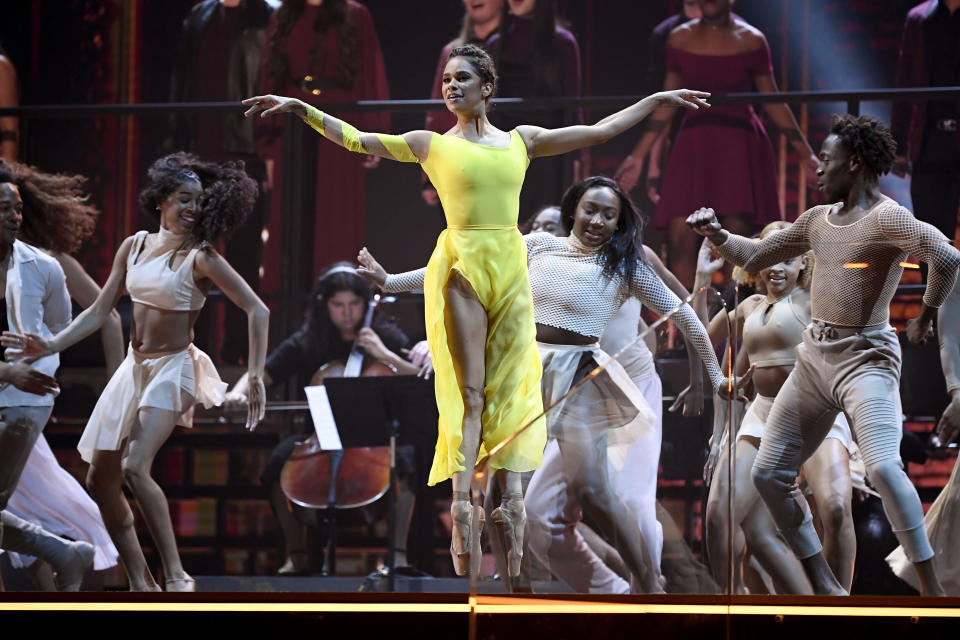Misty Copeland: Ballet 'extremely behind' on racial justice
Ballet star Misty Copeland told Yahoo Finance in a recent interview that the ballet industry remains “extremely behind” on issues of racial justice, criticizing the continued use of blackface in dance productions and the lack of diversity she has witnessed in her career.
But the nation’s racial reckoning in the aftermath of the police killing of George Floyd has prompted the ballet community to address such issues “for the first time,” says Copeland, who in 2015 became the first Black principal dancer at the American Ballet Theater, one of the most prominent ballet companies in the U.S.
“It's something that the ballet world has been very easily able to just kind of get away with,” she says. Now “our eyes are wide open and people are listening.”
“It's something that I've talked about very openly and freely in trying to be the most respectful as I can,” she adds. “Because I know the deep rooted traditions and history in classical dance.”
“Being a European art form and the fact that we still perform those ballets that were created in that time in Europe to this day,” she says. “Just says a lot about where we are in the ballet world when it comes to racism.”
In June, as racial justice protests arose in the U.S. and around the world, ballet dancers called on their companies to acknowledge the lack of diversity and Black representation within the industry. The American Ballet Theater — among other ballet companies and cultural institutions — released a statement mourning the death of Floyd and vowing to do more to address racial injustice.
As ballet companies remain closed amid the coronavirus outbreak, Copeland has spent much of the hiatus pushing the dance community to improve.
“I feel like I'm truly being heard,” she says. “To me, that's a step.”
“This has been my life's work as a dancer, speaking about racism in the world and in ballet speaking about the lack of diversity, and to have my company — to have the ballet world — listening and to have different panels to speak about this in a way that I have before but again, for the first time, people are really seeing it.”
Copeland made the remarks in an episode of Yahoo Finance’s “Influencers with Andy Serwer,” a weekly interview series with leaders in business, politics, and entertainment.

Last December, Copeland posted a photo for her then-1.8 million followers on Instagram that depicted ballet dancers in blackface during a rehearsal at the Bolshoi in Moscow, one of the world’s top ballet companies. “This is the reality of the ballet world,” she wrote.
Speaking with Yahoo Finance, she explained why theaters continue to put on performances that feature blackface.
“Companies in other countries,” she says. “Their reasoning is that that's not their history, so it doesn't have the same meaning to them.”
“It’s like, well, this ballet is all over the world. You can go on YouTube, and you can watch the Bolshoi Ballet and see that, so it's not solely isolated, like maybe it once was. And if you want to keep the art form, alive and relevant and growing, you're gonna have to open your doors,” she adds.
Racial insensitivity in performances drives Black people away from ballet, Copeland said: “Why would they want to pay for a ticket and come into the theater when they're going to be disrespected on the stage?
Read more:
Misty Copeland: Coronavirus will impact ballet for 'years to come’
Bill Gates: We should be able to ‘manufacture a lot of vaccines’ next year
Jump into stock market expecting rise 'a fool's errand': Billionaire investor David Rubenstein
Michael Dell: ‘Not enough’ progress on diversity in the tech industry
Read the latest financial and business news from Yahoo Finance

